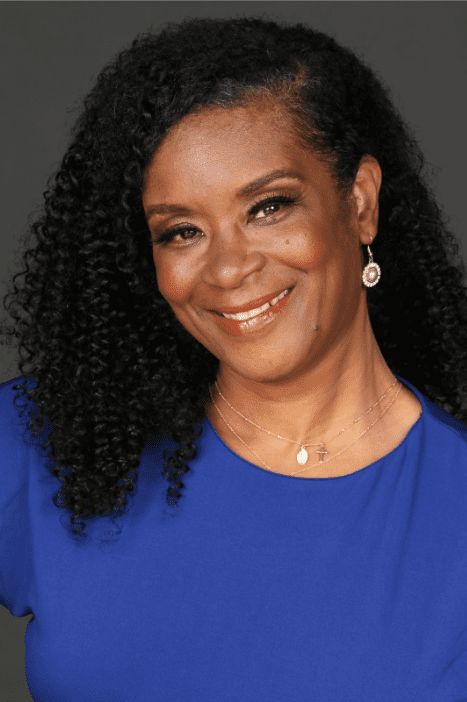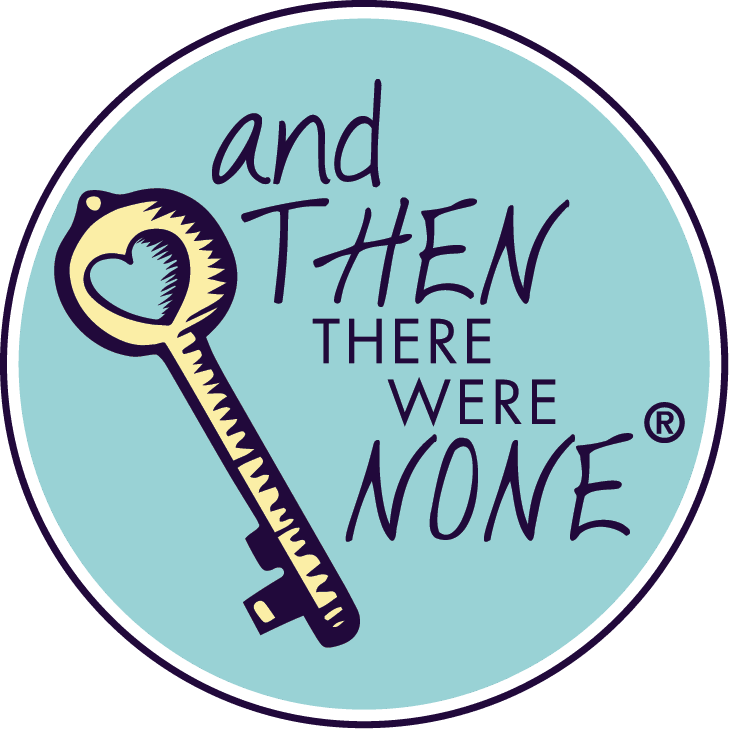Shelley is the picture of dignity and quiet strength. Not one to be drawn into drama or nonsense, she assesses people carefully. While she is quick to offer her friendship and kindness to all, she also is a great judge of character and makes sure that her inner circle is full of trustworthy people.
Shelley grew up learning family values and faith from her family.

“We were Catholic. I graduated from private school,” she said. “Abortion was never discussed. It had never touched my family that I knew of. I remember when one nun wanted to talk about procreation at school, she was removed. It was just never openly discussed.”
Perhaps that lack of education is what led to Shelley’s accidental employment at the Delta Clinic in Baton Rouge, which has since closed. The Delta was owned by the same person who owned the infamous Gosnell clinic, and they were not exactly upfront at Shelley’s interview.
“They advertised themselves as a women’s health clinic,” she said. “At the interview I was told they offered birth control, pap smears, and other women’s health care services. At the end of the interview, I was asked if I was pro-choice or pro-life. I told them I would not abort, nor would I want my kids to abort, but I thought it was up to the woman.”
It was not until her second day on the job that Shelley found out that it was an abortion clinic.
“Another worker could tell that I had no idea what this clinic did. She asked me if I knew that I was working at an abortion clinic,” Shelley said. “She told me that indeed it was, and that today was an abortion day. I literally had no idea.”
For the first few months, Shelley avoided the clinic’s back rooms.
“I did triage, gave the first doses of Mifepristone, and then I would care for the women after their procedures,” she said. “I would have to hurry up, do three sets of vitals in 15 minutes, that is all the time I had with them, and they were gone. As a nurse, this bothered me. There was no real assessment.”
Inevitably, the clinic transitioned Shelley to the back.
“I was introduced to the procedure room. That is when I became numb,” she said. “My entire view of women changed. I saw them as sluts. They knew how they got pregnant. I now know that I was doing this to protect my psyche. My husband was out of work at the time since the oil industry had tanked. All I could do was dehumanize these women and babies. I had to talk myself into continuing to do it.”
When Shelley was finally moved into the POC room, the darkness started to envelop her.
“I was piecing babies back together,” she said. “I did it once, and then suddenly I was doing it every day. I was a nurse, so I knew what I was doing. I could tell the difference between a hand and a foot.”
This darkness ultimately changed the person Shelley had been before. All her relationships were impacted.
“The happy wife and mother I was, the one who loved her kids and loved to sit with my family and talk was gone,” she said. “I began to isolate. My entire demeanor changed. I was not the woman my husband married. Donald was watching my behavior. He knew I was doing something that I was not proud of.”
Donald was unaware that Shelley was working at an abortion clinic. One day he decided to follow her to work.
“My manager told me that my husband was there,” Shelley said. “I was shocked. He was under the impression that I worked at a hospital. After that, Donald started going to work with me.”
What Donald did next was something neither Shelley nor the rest of the clinic staff saw coming. Donald, a strong man of faith, started ministering to the men in the waiting room.
“He would try to encourage them to really support their women,” she said.” He would tell them to be a man and stand up for their women and their baby. Some of them did, and as a result women were leaving and choosing life.”
Of course, this went over like a lead balloon at the clinic. It wasn’t long before Donald was barred from the clinic. Amazingly, Donald kept showing up and talked to the men and women outside after driving Shelley to work.
“He made me start to think about what I was doing.”
It wasn’t until a personal tragedy struck their family that everything came to a head.
“My twenty-year-old son Dillon died suddenly and unexpectedly,” she said. “He was an intelligent, sweet, fun-loving child. I never needed to punish him. I could not have asked for a better child. My grief was so deep. I started to think about the unborn babies as human beings, just like my son. And as victims.”
Shelley’s eyes were opened to the exploitative practices of the clinic.
“I saw how much we preyed on women, and the babies, in their time of need,” she said. “We would tell them that their baby daddy was never going to be there for them and that she just needed to take care of things by getting rid of the baby instead of encouraging them and giving them a chance to see what they could do.”
Devastated after Dillon’s death, Shelley took some time off. Within a few short weeks, the clinic was calling wanting her to come back to work.
“They kept calling me and pressuring me,” she said. “I was afraid of losing my job, so I said I would go back. Donald gave me a hug and a kiss and told me that I could leave any time I wanted to.”
Shelley got in her car to drive to work. Her normal habit was to listen to rap during her commute, but that day she did something she’d never done before and put on gospel music. The protestors who frequented the clinic, most of whom Shelley had developed a decent rapport with, were shocked to see her that day.
“One of them told me that he was so sorry to hear about my son,” she said. “I thanked him and walked in. When I got to the door, I heard a voice in my head telling me that my son was dead because I was killing babies. I spun around and asked the protestors, ‘Who said that?’ They insisted that no one had said that, and they would never say such a thing.”
Shelley then noticed a new protestor who she had never seen before.
“I just remember that his eyes were so blue. He held something out to me, and as I approached him, it was like I was walking into the light. He held something out for me. It was Abby’s number.”
Shelley went directly into the clinic, picked up the phone, and called the number. Abby answered.
“Abby asked me when I wanted to leave. ‘Now,’ I answered. However, I was concerned about my license. The clinic was always threatening our licenses. Abby asked me if we had started clinic yet. We had not. She explained that my license was not in jeopardy and if I wanted to, I could leave.”
That is exactly what Shelley did. She grabbed her purse and walked out forever. When she got home, she called Abby back. She was connected with an advocate and all the resources that would help Shelley transition out of the abortion industry, find healing, peace, and hope with her new tribe of “Quitters.”
“And Then There Were None took such good care of us. It was what we needed. Such a blessing,” Shelley said.
Shelley finally found a job as a pediatric and NICU nurse.
“Going from working in an abortion clinic to a NICU was dramatic, but also healing,” she said. “I started to pray and re-discover my faith. The job didn’t heal me, but it was a band-aid.”
Shelley was able to attend her first healing retreat about a year after leaving. As most Quitters are the first time, she was nervous and didn’t know what to expect.
“I almost didn’t want to go,” she said. “Everything was still so fresh. I was afraid that I would be the one who did the worst things. That even in a room with all former abortion workers, I would still be judged. But it was the opposite. It was so peaceful. I remember getting the best night’s sleep. Everyone was so welcoming and loving. I have gone on every retreat since then. My tribe is everything. They are my lifeline. They offer hope when I have no hope. They are who I share my deepest and most intimate secrets with.”
In addition to seeing each other at And Then There Were None retreats and events, Shelley and the other Quitters vacation together, talk often, and are a part of each other’s daily lives. They enjoy welcoming new workers into the fold and showing them the love and acceptance that they received when they were new.
It was no surprise to the tribe that when Shelley found herself in desperate need of a kidney, everyone rolled up their sleeves to get tested. Caroline, another Quitter in the And Then There Were None tribe, was a perfect match. She donated her kidney to Shelley, saving her life and creating a bond between their families, including their husbands, that is unbreakable.
“I could not believe that type of love,” Shelley said. “I had family members who would not even get tested. Caroline hardly knew me, and here she is, giving me a kidney. Now, we are sisters.”
Today, Shelley’s marriage and family is stronger than ever. Before, she described her relationship with God as wishy-washy at best. When she needed Him, she would call on Him.
“Now, we walk together side by side,” she said. “That girl who walked out of that clinic was so broken. She is gone. I am now a different person.”
Shelley has become an important voice in the pro-life movement and advocate for the unborn. She was the keynote speaker at the Baton Rouge March for Life, is involved in the upcoming documentary Unthinkable along with Donald, and speaks on panels with other former abortion workers. She is always looking for ways to give back and is open to sharing more in the future as God leads.
Shelley urges any current abortion workers to reach out to And Then There Were None.
“Trust your instincts,” she said. “Get out. You have a sisterhood waiting. You will never be alone or judged. Just pick up that phone. I mean, we give out organs! Without And Then There Were None, I would not be alive.”
